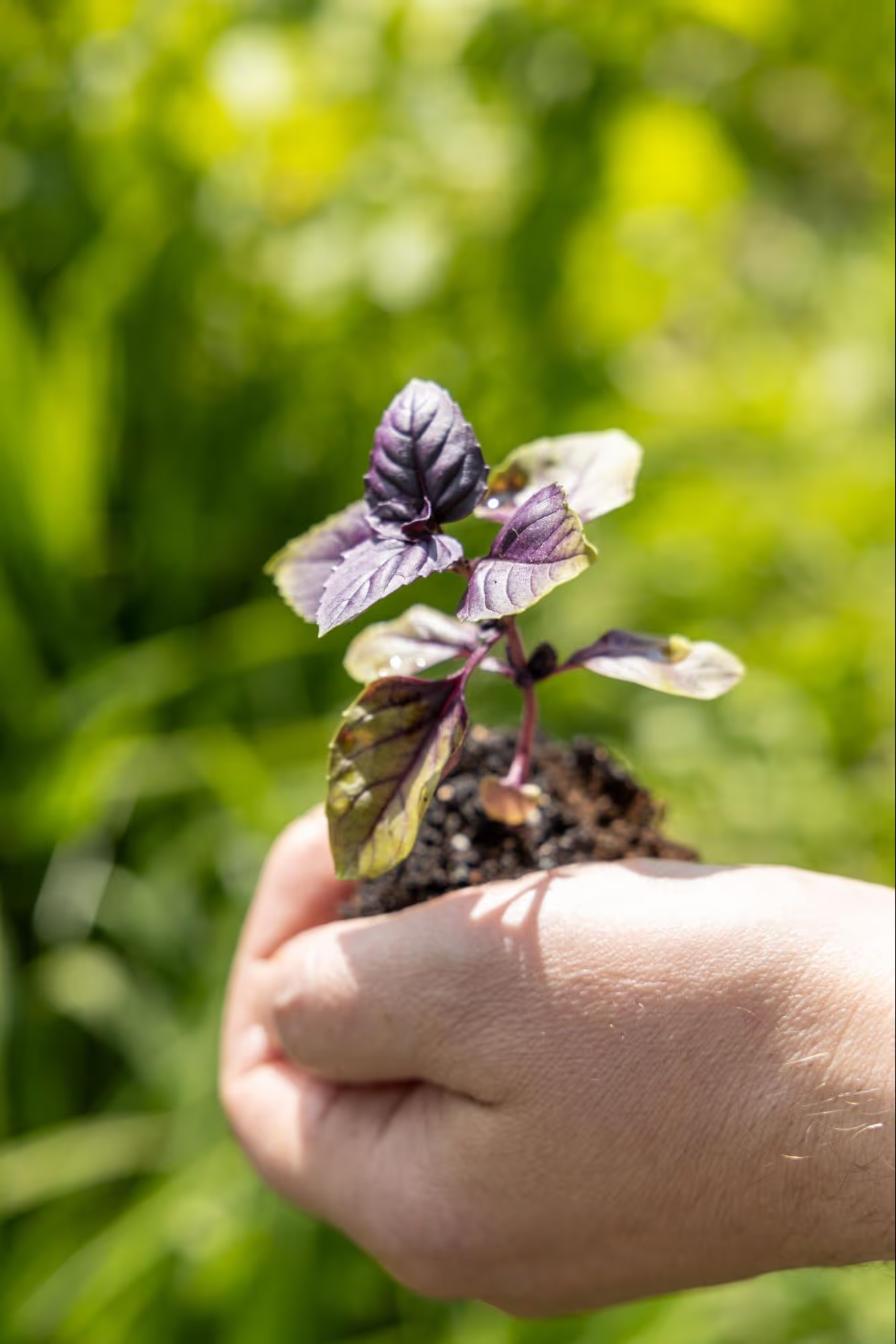Thai basil is a plant that is becoming increasingly popular in urban environments due to its unique taste and aroma. Growers around the world are exploring different cultivation methods to achieve the best results, whether by choosing traditional soil cultivation, modern hydroponic systems, or aeroponics. Each of these techniques offers its advantages in terms of growth conditions control, resource efficiency, and development speed, but also presents certain challenges that need careful consideration.
Thai Basil in Soil
Growing Thai basil in soil is the most common method, especially for amateurs and plant enthusiasts. As a plant that thrives in warm climates, sunlight, and moist, well-drained soil, Thai basil is a great fit for gardens and outdoor spaces.
Advantages:
- Natural Conditions: The plant naturally grows in the soil, meaning it has direct access to nutrients, water, and the necessary oxygenation through its roots.
- Simplicity: Growing Thai basil in soil is easy and requires minimal equipment (good soil, sunny location, and regular watering).
- Lower Costs: This method is affordable because it doesn't require expensive equipment, making it accessible for all growers.
Challenges:
- Control of Conditions: It can be difficult to maintain ideal growing conditions in soil. For example, soil pH, moisture, and temperature can be challenging to control, which can negatively affect yields.
- Space: Growing Thai basil in soil requires a certain amount of space, which can be limiting in urban areas where garden or yard space is scarce.
- Pests and Diseases: Because the plant is in direct contact with the soil, it may be vulnerable to pests and diseases, requiring additional protection and care.
Thai Basil in Hydroponics
Hydroponics is a method of growing plants in water-based solutions that contain all the nutrients the plants need for growth. In hydroponics, Thai basil is grown in specialized systems like NFT (Nutrient Film Technique), DWC (Deep Water Culture), or floating basket systems.
Advantages:
- Faster Growth: In hydroponics, plants grow faster because they directly absorb nutrients from the water, which allows for optimal growth and development.
- Greater Control: Hydroponic cultivation allows full control over growing conditions. Parameters such as pH, nutrient concentration, and temperature can be easily adjusted.
- Space Saving: Hydroponics enables vertical farming and cultivation in smaller spaces, making it ideal for urban areas with limited space, such as apartments or rooftops.
Challenges:
- High Initial Costs: Setting up a hydroponic system can be expensive as it requires specialized equipment, water tanks, pumps, pipes, and nutrient control systems.
- Technical Complexity: Hydroponics requires constant monitoring of system parameters, such as pH, nutrient levels, and temperature. Any system failure can quickly harm the plants.
- Dependency on Technology: If issues arise with pumps, pipes, or power supply, the entire production can be at risk.
Thai Basil in Aeroponics
Aeroponics is a method where the plant roots are suspended in the air and sprayed with a nutrient solution. This method allows the plant to get maximum oxygen and nutrients through direct interaction with microscopic droplets.
Advantages:
- Exceptional Efficiency: Aeroponics allows very efficient resource use, especially water. It uses a minimal amount of water as the solution is recycled and sprayed directly onto the roots.
- Faster Growth: Plants grow faster because they have direct access to nutrients and optimal oxygenation. This method can significantly accelerate Thai basil’s maturation.
- High Yield: Aeroponics enables high yields because plants can be grown in vertical systems and in smaller spaces, which is suitable for commercial growers.
Challenges:
- High Initial Costs: Like hydroponics, aeroponics requires significant investments in specialized equipment, including spraying systems, pumps, and climate control systems.
- Technical Complexity: Aeroponics requires constant attention and technical knowledge. Issues with spraying or watering can quickly damage the plants. Additionally, the system requires ongoing monitoring of nutrient levels and pH.
- Sensitivity: Although aeroponics promotes faster growth, plants may be sensitive to changes in the system and require precise management of conditions.
Choosing the Right Method for Growing Thai Basil
Each method of growing Thai basil – whether in traditional soil, hydroponics, or aeroponics – has its advantages and challenges. Growing in soil is simple and cost-effective but can be difficult in terms of controlling conditions and exposure to diseases. Hydroponics allows for faster growth and greater control over conditions, but comes with higher initial costs and technical demands. Aeroponics offers exceptional efficiency and faster yields, but requires high investments and constant monitoring. The choice of the most suitable method depends on the specific needs and resources of the grower, whether a small-scale plant lover or a commercial producer.
